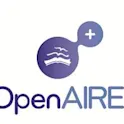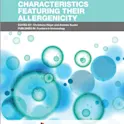Frontiers Communications
Editor
Editor

Life sciences
04 Aug 2015
Going to #eseb2015 in Lausanne, Switzerland? Join Frontiers in Ecology and Evolution at the 15th congress of the European Society for Evolutionary Biology this August 10 – 14! Come chat with us about Open Access publishing, peer-review, becoming an editor while tasting some delicious Swiss chocolates! All questions are welcome and no topic is off limits. For example, would you like to bring attention to your particular research area? Why not participate in editing a collection of cutting-edge peer-reviewed articles, called a Research Topic? Recently in Frontiers in Ecology and Evolution, the Research Topic Ballroom biology: recent insights into honey bee waggle dance communications has been quite successful, with over 8,000 views and 25 authors participating. If you are interested in social evolution, check out this other Research Topic, on Genetic effects on social traits: empirical studies from social animals – it is currently open for submissions! You can learn more about Research Topics in this brochure. We are looking forward to seeing you at ESEB 2015!

Engineering
03 Aug 2015
In case, you missed it, System Administrator Appreciation Day was on Friday and being a technology-based company, we couldn’t let the day go by without celebrating. Frontiers System Administrator John Tecu got to do the honors on behalf of all his colleagues. And the cakes, by our multi-talented Marie Soulière (Program Manager & Journal Manager) were as delicious as always.

Open science and peer review
03 Aug 2015
Changes in scholarly publishing over the last 20 y include the emergence of preprint servers and the growth of OA. But other important changes have received less publicity. Richard Walker and Pascal Rocha da Silva discuss.

Open science and peer review
31 Jul 2015
Selected news, views and information on Open Science and scholarly publishing from the past week

Open science and peer review
28 Jul 2015
Open Science and scholarly publishing roundup – May 22, 2015 Selected news, views and information on Open Science and scholarly publishing from the past week

Young Minds
27 Jul 2015
Note: This blog post was originally published as a blog on Scientific American – http://blogs.scientificamerican.com/frontiers-for-young-minds/trying-for-fun-and-ending-up-with-a-textbook-instead/ Knowing your audience is a vital piece of science communication: what is important to them, what is exciting to them, and what will send the right message. But it is easy to fall into the trap of thinking that knowing about your audience is the same as knowing what they actually like. I speak from personal experience and – as the manager of a journal founded on the idea of asking kids to review scientific articles for their own peers – the irony of my own surprise at kid feedback is not lost. We recently set about creating a new design for the PDF versions of our articles. The goal was to make them more accessible and more enticing to young readers. Our team came up with a series of proposals that were each designed with the following goals in mind: Make the articles easier to read Take better advantage of the figures Make the articles seem more fun Make the new vocabulary easier to understand Make the articles feel as little like school as possible Get young readers to want to read all the way to the end […]

Frontiers news
24 Jul 2015
Drs Michael Moritz and Birgit Knoechel head Frontiers in Pediatrics as Chief Editors

Life sciences
20 Jul 2015
While New Horizons is making history by sending back a wealth of data from Pluto and its moons, let us not forget another piece of space history – today, Monday July 20th, is the 46th anniversary of the first Moon walk. It all began with Apollo 11, with astronauts Neil Armstrong, Buzz Aldrin, and Michael Collins blasting off into space on July 16th, 1969, with the intent to be the first men to land on the Moon. On July 20th, at 20:18 UTC Neil Armstrong became the first man to walk on the surface of the Moon, an event watched by an estimated 500 million people (at the time nearly 15% of Earth’s population). The crew of Apollo 11 spent approximately 21 and a half hours on the lunar surface before returning home, bringing back with them over 20 kilograms of Moon rock. “Here men from the planet Earth first set foot upon the Moon, July 1969 A.D. We came in peace for all mankind.” – Inscription on the Lunar plaque left on the Moon Over the next 3 and a half years 5 other Apollo missions and 10 other men walked on the lunar surface: Apollo 12, November 19th, 1969: Pete Conrad’s first words upon landing on the Moon (“Whoopie! […]

Open science and peer review
20 Jul 2015
The European Commission (EC) recently announced a new pilot project that supports publishing with Gold Open Access publishers like Frontiers. The pilot, entitled OpenAIRE, will help fund Open Access publications for FP7 projects finished within the last two years which have been accepted and peer-reviewed. Only publications in recognized Open Access journals listed in the DOAJ, Scopus, Web of Science and PubMed are eligible for post-publication funding with as much as €2,000 per article to help cover publishing costs for research and review article types and as much as €6,000 for monographs. “This announcement is very important to the industry as it not only shows that the EC recognizes Gold Open Access publishing as one of the key solutions to unlocking research knowledge, it is also important as they have expressed their appreciation for the costs involved in providing a high quality Open Access publishing service,” said Kamila Markram, CEO of Frontiers. Frontiers provides a premier Gold Open Access solution with a novel enhanced interactive peer-review process that helps authors and reviewers enhance the quality of published articles. In as little as 7 years, Frontiers has became one of the top 5 Gold Open Access publishers in the world with over 34,000 articles published in 54 journals covering 411 specialties across all academia. Articles published with Frontiers qualify for funding through […]

Young Minds
17 Jul 2015
With today’s publications, Frontiers for Young Minds celebrates its expansion into one of its new subject areas: Understanding the Earth and its Resources. This new specialty is led by Specialty Chief Editor Berend Smit of the EPFL and UC Berkeley.

Open science and peer review
17 Jul 2015
Selected news, views and information on Open Science and scholarly publishing from the past week

Life sciences
16 Jul 2015
Meet Michiel Dijkstra, from the Frontiers Press Office. Before coming to us, he did a PhD on social evolution at the University of Copenhagen, and worked as a postdoc at McGill University and the University of Lausanne. *Entirely* coincidentally, he picked as his personal favorite a paper from Frontiers in Ecology and Evolution. Read the paper: http://fron.tiers.in/go/8R17QF Otero-Bravo A and Sabree ZL (2015) Inside or out? Possible genomic consequences of extracellular transmission of crypt-dwelling stinkbug mutualists. Front. Ecol. Evol. 3:64. doi: 10.3389/fevo.2015.00064 Michiel writes: “This paper is on a fascinating symbiosis: between stinkbugs (insects in the superfamily Pentatomoidea) and the bacteria that live inside their guts. The stinkbugs can survive without these bacteria, but develop more slowly and die faster without them. Here, Alejandro Otero-Bravo and Zakee L. Sabree from The Ohio State University review the evolutionary effects of the symbiosis on the genome – that is, the ensemble of the DNA, including genes – of the bacteria. The genome has shrunk and partly degenerated. But interestingly, not to the same extent as in many other bacteria that live in association with insects. The researchers explain this from the way the female stinkbugs pass the bacteria on to their offspring: by smearing […]

Humanities
16 Jul 2015
For nearly 30 years, Eleanor Selfridge-Field has been working in the field of Digital Musicology. She’s currently a Consulting Professor of Music and Symbolic Systems at Stanford in California and an Associate Editor for the Digital Musicology section of Frontiers in Digital Humanities. But the journey into her amazing career was one of serendipity.

Frontiers news
13 Jul 2015
This week Frontiers published its 600th e-book. Our latest e-book, entitled “Animal Allergens: Common protein characteristics featuring their allergenicity” can be found in Frontiers Books. Frontiers Books is similar to an online bookstore, where you can find e-books on a variety of specialty research topics. Content selected for our prestigious e-book collection is generated from Frontiers Research Topics, Frontiers Themes or Focused Reviews. In addition to providing a downloadable e-book of the entire article collection, Frontiers Research Topics provides a unique way for leading researchers to manage the publication of a collection of peer-reviewed articles around their own area of research. EPUB and PDF versions of each e-book are available for free. Our top 5 e-books for 2015 so far include: Mechanisms of antibiotic resistance Plant responses to flooding Brain and Art Magnetic Resonance Imaging of Healthy and Diseased Brain Networks Extracellular Nucleotides in the Regulation of Kidney Functions Have an idea for a Frontiers Research Topic e-book? Email: researchtopics@frontiersin.org

Open science and peer review
13 Jul 2015
Selected news, views and information on Open Science and scholarly publishing from the past week
Get the latest research updates, subscribe to our newsletter